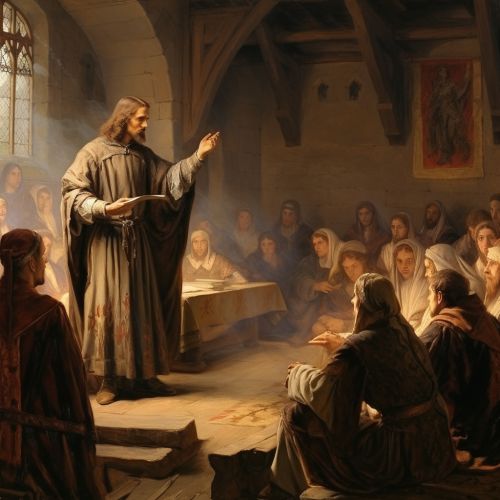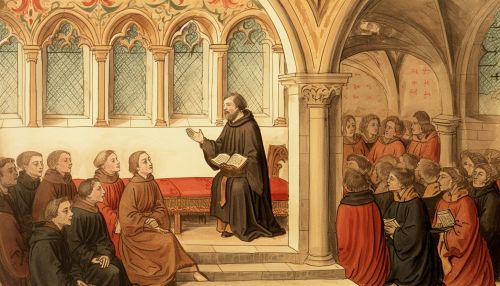Scholasticism
Introduction
Scholasticism is a method of critical thought which dominated teaching by the academics (or Scholastics) of medieval universities in Europe from about 1100 to 1700. It originated within the Christian monastic schools that were the basis of the earliest European universities. The rise of scholasticism was closely associated with the rise of the 12th and 13th century schools that developed into the earliest modern universities, including those in Italy, France, Spain and England.
Historical Overview
Scholasticism is not so much a philosophy or a theology as a method of learning, as it places a strong emphasis on dialectical reasoning to extend knowledge by inference and to resolve contradictions. Scholastic thought is also known for rigorous conceptual analysis and the careful drawing of distinctions. In the classroom and in writing, it often takes the form of explicit disputation; a topic drawn from the tradition is broached in the form of a question, oppositional responses are given, a counterproposal is argued and oppositional arguments rebutted.


Origins and Development
The origins of Scholasticism can be traced back to the work of Anselm of Canterbury, who is often cited as the "father of Scholasticism". Anselm's work was highly influential in the development of Scholastic thought, particularly his use of reason to explore theological issues. His approach to theology and philosophy, which involved the use of logical argument to explore religious belief, set the tone for much of the Scholastic debate that followed.
Key Concepts
Scholasticism is based on a number of key concepts, including the use of reason to interpret Scripture, the compatibility of faith and reason, and the importance of rigorous intellectual debate in understanding and defending the Christian faith. These concepts are central to the Scholastic method and underpin much of the debate and discussion that characterises Scholastic thought.
Influence and Legacy
The influence of Scholasticism on Western philosophy and theology cannot be overstated. It played a crucial role in the development of Western intellectual tradition, shaping the discourse of the medieval Church and influencing the development of the modern university. Despite the decline of Scholasticism in the face of the rise of humanism and the scientific revolution, its influence can still be felt in contemporary philosophy and theology.
Criticism
Scholasticism has been subject to various criticisms over the centuries. Some critics argue that the Scholastic method is overly reliant on logical argument and fails to adequately account for the role of experience and emotion in religious belief. Others suggest that Scholasticism's emphasis on intellectual debate and disputation can lead to a neglect of practical action and ethical behaviour.
